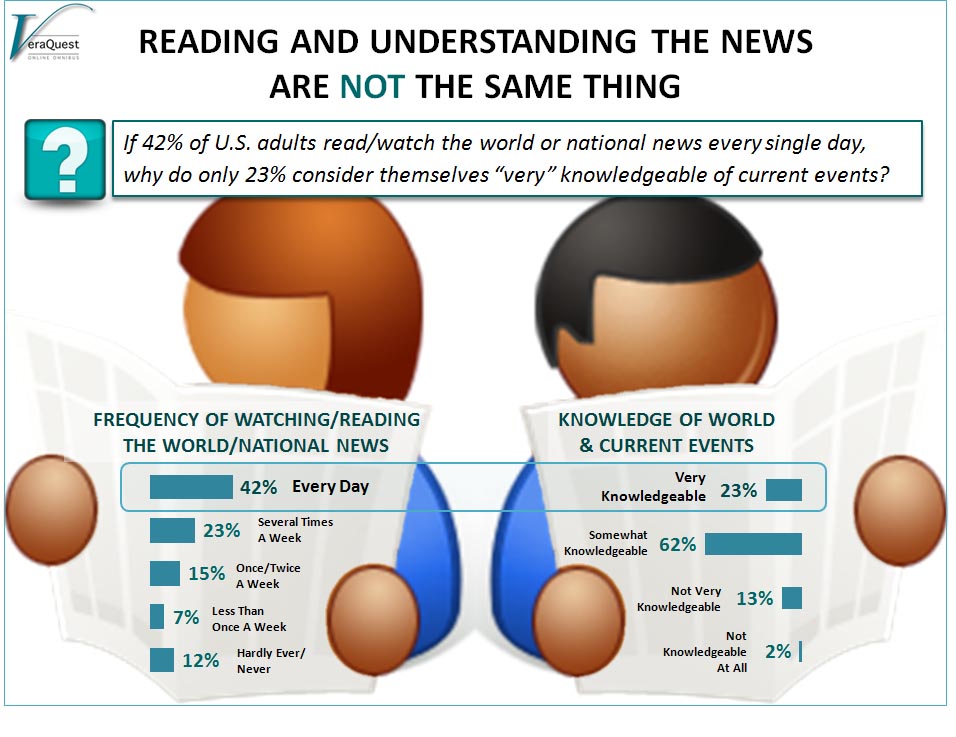I am not a psychotherapist. But perhaps I have done enough survey research to qualify for an armchair PhD, at least enough to say that there appears to be a natural disconnect between self-perception and reality.
Tali Sharot (a neuroscientist at University College of London and author of The Optimism Bias: A Tour of the Irrationally Positive Brain) studies why many people anticipate they personally will dodge the odds, when faced with risk.
I’m not sure if optimism is just a nice veil for saying naivete, idiocy or recklessness. But, I have reviewed data set after data set in which the majority of adults think they are “above average” drivers…. smarter than their colleagues in the next cubicle… immune to disease …. deserving of an above average salary…. staying married forever…. not going to raise obese children… and on and on. But someone has to be on the losing side of the average, right?
Based on the latest VeraQuest study, the same may be true of our knowledge of current events:
- 23% of U.S. adults say they are very knowledgeable about the world and current events,
- 62% say they are somewhat knowledgeable,
- 13% say they are not very knowledgeable, and
- 2% say they are not knowledgeable at all.
And at least by perception, Southerners, men, married couples, and adults ages 30-39 and 50-64 are more likely to declare themselves in the “very knowledgeable” camp.
But here’s where the disconnect happens – with some over- and some under-estimating on either side.

Are NOT the Same Thing
Knowledge is a bit of a subjective concept, but:
- If 42% of U.S. adults read/watch the news every single day (or nearly every day), why do only 23% consider themselves “very” knowledgeable of current events?
- If Midwesterners read/watch the news significantly more than Southerners, why are they much less likely to consider themselves knowledgeable?
- If men and women read/watch the news at almost exactly the same rate, why do men of all ages view themselves as significantly more knowledgeable?
- If young adults (ages 18-29) read/watch the news much MUCH less (in fact, almost half as frequently as 40-49 year olds and more than three times less than 65+ year olds), why do all age groups report essentially the same amount of knowledge?
What explains this disconnect – optimism of our talents or liabilities as Sharot suggests? Self-confidence or lack thereof? A world full of multi-tasking and thus lack of attentiveness to what we absorb? An overabundance of news leading to a feeling that there is always more to learn?
Did you read or watch the news today? If so, do you feel knowledgeable enough to tell us about it?
Leave a Reply